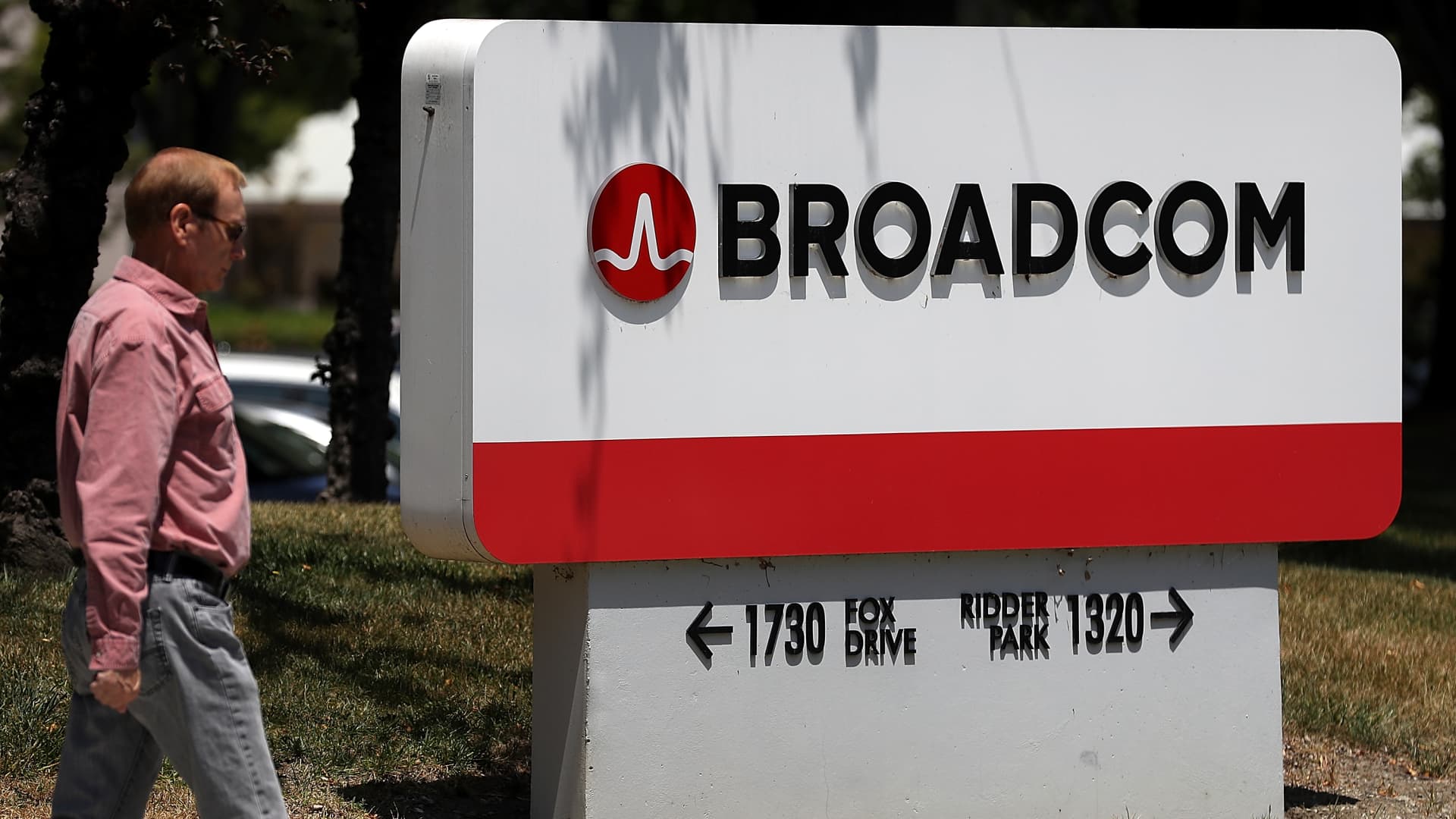Signage is displayed outside the Broadcom offices on June 7, 2018 in San Jose, California.
Justin Sullivan | Getty Images News | Getty Images
This report is from today’s CNBC Daily Open, our new, international markets newsletter. CNBC Daily Open brings investors up to speed on everything they need to know, no matter where they are. Like what you see? You can subscribe here.
What you need to know today
The bottom line
Major U.S. indexes closed slightly higher Monday. The S&P 500 advanced 0.39%, the Nasdaq Composite climbed 0.2% and the Dow Jones Industrial Average rose 0.43%. Statistically, however, those are impressive moves: The S&P and Nasdaq are continuing a six-week winning streak, while the Dow closed at its highest level since January 2022.
Investors have (the hype over) artificial intelligence to thank — in part, at least. While AI-frontrunner Nvidia slumped more than 2% Monday, Broadcom shares popped 9% after Citi resumed coverage on the semiconductor maker, rating it a “buy.”
“We believe its AI business will offset the correction in the semi business,” Citi analyst Christopher Danely wrote about Broadcom.
That glowing review helped boost other semiconductor stocks as well. AMD advanced 4.26%, while the iShares Semiconductor ETF added 3.41% and the VanEck Semiconductor ETF rose 2.4%.
Another factor helping stocks is moderating inflation expectations. A New York Federal Reserve survey showed respondents, on average, expect inflation to drop to 3.4% in a year, the lowest since April 2021. That optimism echoes the University of Michigan’s Consumer Sentiment reading.
Still, anticipating inflation to fall in a year doesn’t mean the U.S. Federal Reserve will cut rates as hastily as investors hope. Market watchers think the Fed will almost certainly keep rates unchanged at its Wednesday meeting — and there’s only a 46.5% chance the central bank will cut rates by a quarter percentage point in March, according to the CME FedWatch Tool.
With the consumer and producer price reports coming out later this week, that assessment’s subject to change too.
“No one expects a hike, but hotter-than-expected inflation readings could throw cold water on the idea that rate cuts are coming sooner rather than later,” said Chris Larkin, head of trading and investing at E-Trade.
In such a busy week, perhaps it’s better to adopt a wait-and-watch approach, despite the recent rally in stocks.

